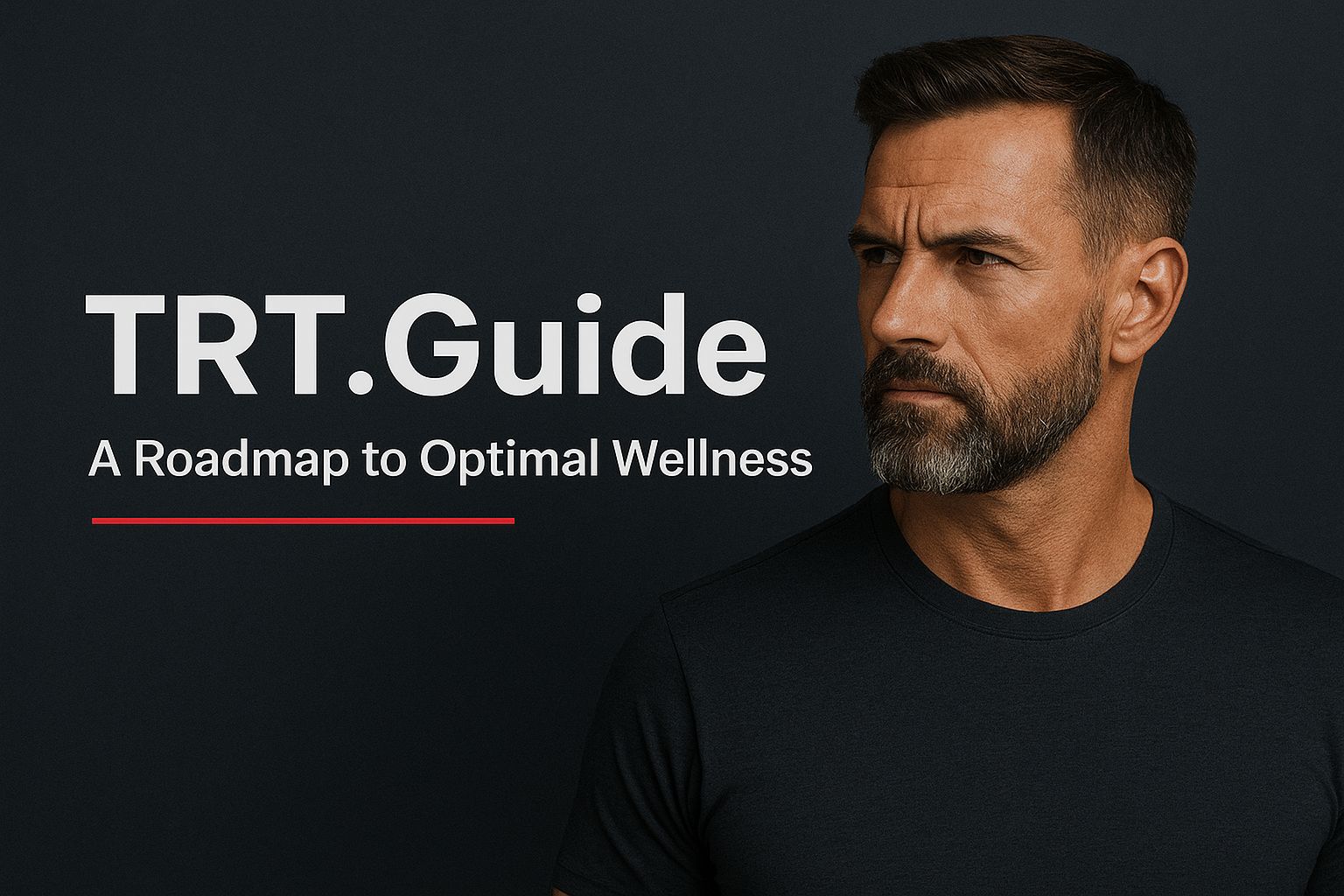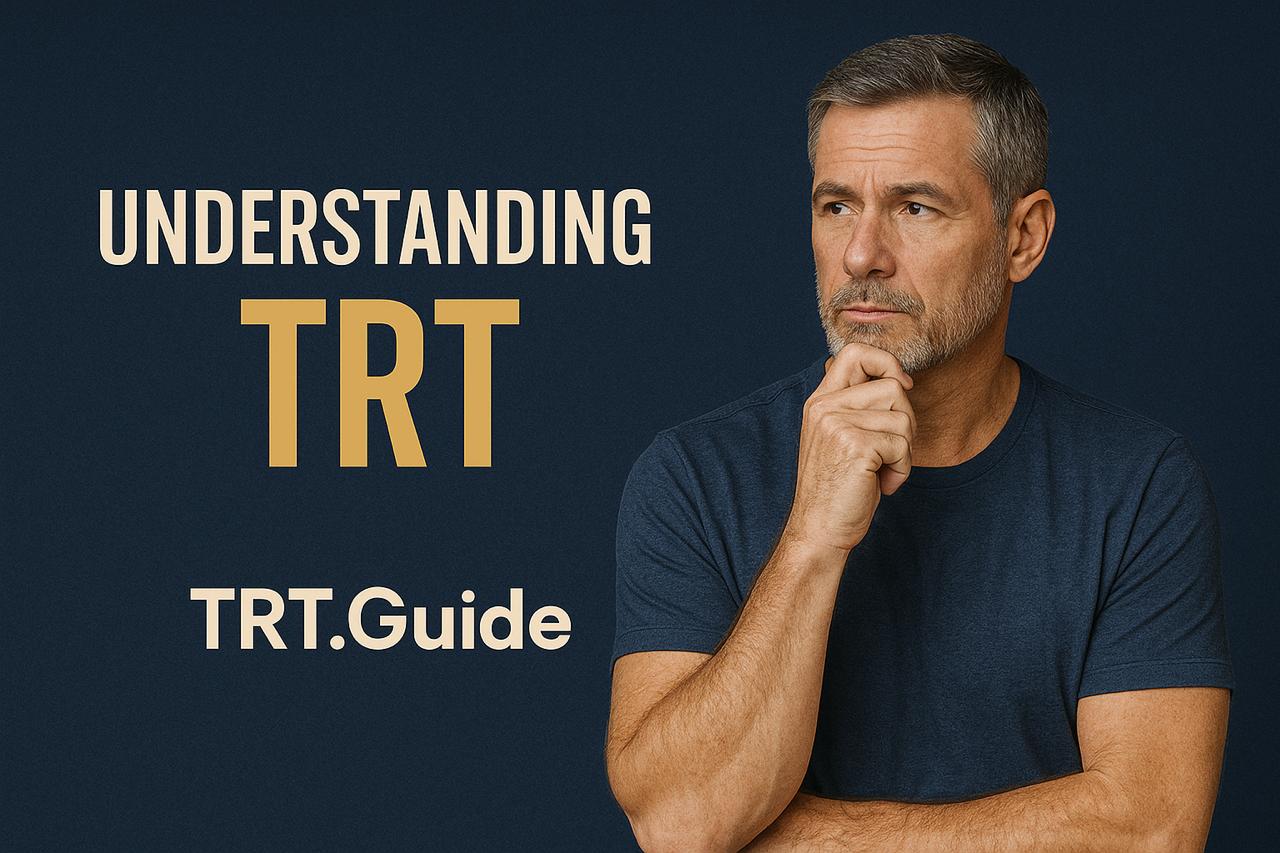Most individuals will find that the decision to discontinue Stopping Testosterone Replacement Therapy is life-altering. One’s intention might be due to facing harmful reactions or merely seeing that this move is just another possibility and therefore the consequences should be clearly spelled out. The process is one that not only involves physical changes but also the emergence and management of emotional and psychological factors that can affect the individual’s overall well-being.
Transitioning from one form of treatment to another, “softer,” “natural,” or just “different” which you think might be a better alternative is an individual’s essential right, and at the same time, a huge personal responsibility. You may be in search of new pathways for exploring your inner self to come to a better understanding of your own self and the world around you.
Understanding Testosterone Replacement Therapy
Testosterone Replacement Therapy (TRT) aims to correct the condition of the person by offsetting the imbalance and returning the testosterone levels back to their standard state. It can be a broad-spectrum therapy and implies continuous or serial observation.
What Is Testosterone Replacement Therapy?
Testosterone Replacement Therapy refers to a medical intervention that raises the level of male hormone in the body of individuals who are having low hormone levels. The treatment can be given in different ways: by intramuscular injections, transdermal patches, gels, or pellets. The purpose of this treatment is to remove the symptoms of the lack of testosterone, such as tiredness, loss of sexual desire, mood swings, and loss of muscle mass.
For those who are suitable for it, they can have a dramatic change in the quality of their lives which will be marked by increased energy and a general improvement of their well-being. It is important to talk to a doctor and get advice on which medication will work best as a person may react differently.
Reasons for Imitating the Treatment
You could be looking at several factors that may lead you to make a decision to opt for Testosterone Replacement Therapy (TRT). Common causes were fatigue, decreased sexual desire, difficulty concentrating, and mood swings. It is worth mentioning that not only behavioral changes but the failure of the body has also been motivating people to look for help.
Testosterone replacement therapy can also be utilized by patients to manage several health issues that include such cases as hypogonadism and occasionally erectile dysfunction. It is quite often a fact that the remedy not only makes one feel much better but it is also that it is an extra means to get that extra energy a person needs and hence get into a brighter mental and emotional state. People who understand the whys behind the decision to start a TRT procedure are more likely to determine the positive or negative changes, that is, how the body responds to the medication.
What Might Make You Stop Treatment with Testosterone Replacement Therapy?
Deciding to stop testosterone replacement therapy (TRT) may be due to several aspects that are related to your health. The knowledge of these factors can act as a guide for effective decision making and thus, it is of utmost importance in living your life with much ease.
Potential Side Effects
It is possible that the use of TRT leads to the occurrence of side effects in your body that are detrimental to your physical and emotional well-being. The most common of the side effects are:
- Skin Reactions: Acne or irritations at the injection sites are some of the possible reactions.
- Cardiovascular Risks: TRT may increase the risk of blood clots or heart issues.
- Hormonal Imbalance: When TRT stops, the hormonal levels become unsteady and upset. It is also a swing in mood and tiredness that takes effect.
- Sleep Apnea: Some individuals develop or worsen sleep apnea, leading to disrupted sleep patterns.
- Prostate Health: The changing size of the prostate may cause the problem of urination, indicating the necessity of a doctor’s visit and not necessarily it is regarding the TRT progress.
By being aware of such side effects, you might decide to stop the treatment. Going to get consultations with healthcare providers at frequent intervals is an effective way to assess these risks. h
Changes in Health or Lifestyle
There could be personal and health-related reasons that will lead you to discontinue TRT. Some matters to look at include:
- Age: As a part of your biological clock, the body’s hormones adjust themselves as you grow older.
- Health Conditions: Usual health problems such as prostate cancer or heart disease should not be excluded as a possible reason for stopping treatment.
- Lifestyle Adjustments: It’s possible that you’ve chosen to do good to your body by sticking to a well-balanced diet or taking regular exercises, which are valid reasons that can lead to the medical re-evaluation lining the TRT technology.
- Wellness Aspects: If there is an issue about productivity or mood without TRT taking the lead, discontinuing may be the best option.
- Financial Considerations: Price is one of the factors that the person considers when he ventures into the other opportunities beside those, the cost of TRT treatment should be a matter under consideration by the patient.
Understanding these adjustments in life and health can be the roadmap to finding out the essential information necessary for deciding about cessation of TRT.
The Act of Ceasing Testosterone Replacement Therapy
Concluding the treatment with testosterone replacement (TRT) requests careful organization and the knowledge about your body’s situation. Being aware and familiar with the conditions can give you the edge to pass this stage in a less agonizing way.
How to Step Down Your Dosage Gradually
Slowly decreasing the dosage of testosterone is advised since this will be controlled by the doctor only. A sudden discontinuation might cause withdrawal symptoms such as fatigue, low spirits, and lack of sexual drive. Firstly, you can either decrease the frequency of your injections, or use the transdermal form but take a smaller dose.
For example, if you have been given injections weekly, the dosage can be changed to bi-weekly for a period and thereafter minimize the dose. During this process, take note of the changes your body will undergo. Write down the physical or emotional changes in a diary, which can provide the needed information to the healthcare professional. Use the adjustments of your slow-down schedule based on your own experience and health status as a guide. Moreover, do not be reluctant to tell your provider any problems you may have openly.
Communication with a Health Expert
- Personal Goals: Re-evaluating treatment may be the best choice if boosting mood or lightening up the energy level without the use of TRT gets on top of the list of your priorities.
- Economic Factors: The expense related to TRT could ultimately become a big concern that may lead you to start thinking about other options.
Understanding your own lifestyle and health adjustments can make you well-informed about the decision to discontinue TRT.
Procedures Used in Stopping Testosterone Replacement Therapy
When you decide to stop the treatment with testosterone replacement (TRT), it is better to think over this issue wisely and explain the example of your body’s health needs. Adhering to and doing as the plan outlines can make the process more comfortable and less troublesome.
Which is the Best Way to Gradually Decrease Dosage?
It is suggested that you reduce your testosterone under the doctor’s supervision with the slow reduction method. Furthermore, if you stop it abruptly, you will be affected by symptoms which are withdrawal. That is, you will experience tiredness, depression, and low libido.
Educate not only yourself but your healthcare professional before you decide to stop TRT. The professional surely will tell you about all your possible side effects and also provide particularly effective step-down therapy. Make an appointment to see your healthcare professional to tell him/her your reasons for stopping the therapy and to also raise any queries.
The practitioner will want to take your blood to check hormone levels and other aspects of health before, during, and after the weaning off process. Getting this data helps to form a tapering plan that is the most suitable. He/she can also suggest that you make changes in your lifestyle, for instance, exercise and diet, to help the hormones adjust during the period of transformation.
Besides, regular updates will keep track of your recovery and at the same time allow you to voice out your concerns and receive the necessary help and changes, thus making the whole process of your no longer taking TRT much easier.
Post-Therapy Considerations
Making sure of your post-therapy considerations lays down the foundation for coming off of testosterone replacement treatment (TRT) without a hitch. The changes that the human body may experience and the measures taken to facilitate the healing process should be made clearly to the patient.
Monitoring Hormone Levels
The first priority is to check the hormone levels after discontinuing the use of TRT. Periodical blood tests check testosterone and other hormonal levels to estimate the response of the body. The healthcare provider will organize a schedule for patients to be tested, often between 4 to 6 weeks in the beginning, to measure the extent of the fluctuations in the hormone levels and confirm that the natural production of testosterone by your body is under way.
Through these tests, it is possible to detect any potential hormonal imbalances that may arise quickly and thus provide the early intervention. In case the levels continue to be way down, your healthcare provider can offer you other treatments or suggest some lift-style changes to get the balance back. Keeping a close eye on the process makes the patients decide based on all the necessary information at their disposal. Maintaining situational awareness throughout the process is crucial.
Managing Symptoms After Stopping
If you recognize the symptoms after stopping TRT, it means that you’re ready to deal with these complaints actively and to improve the situation. The recovery phase from stopping TRT might be characterized by such issues as fatigue, mood swings, or decreased libido, which are at least in part symptoms of adjusting to changes in testosterone production.
Therefore, one of the cornerstones of your act should be recourse to a balanced diet consisting of key nutrients, regular physical exercise, and a regular sleep pattern that will yield the best results. Adding to that the stress managing tool of mindfulness or yoga exercises could produce immediate relief for the emotional symptoms.
However, if your symptoms are more severe and are likely to persist, you should communicate this to your healthcare provider so that they can give you advice on ways such as counseling, supplements, or other forms of therapy to reduce the side effects and thus be able to have proper stress control. Your practicing of such strategies is very likely to make your adaptation smoother and to ensure your wellbeing in the long term.
Conclusion
Opting out of the testosterone replacement therapy requires a great deal of caution and not something to be taken lightly. Knowing what sort of physical and emotional symptoms might occur is already a halfway mark on the road of change and transition. Coordinating with your healthcare provider is essential in creating a gradually decreasing plan that is the most suitable for your body and health.
Where the hormonal level is under control and withdrawal symptoms are managed, the total wellness part will be your responsibility. Indeed, even more through this specific diet, exercise, and sleep plan you decide to embrace. Practicing open communication with your healthcare provider will be of great benefit as it can solve many of the annoying concerns coming from that front and provide you with a very smooth journey to recovery.
Frequent Ask Questions
What is testosterone replacement therapy (TRT)?
TRT is a medication prescribed to men to overcome hormonal imbalances which reset the number of available testosterone hormones to the normal level. The injection, transdermal patch, gel, and subcutaneous pellet are the types of administration. Many patients are choosing this approach to alleviate their fatigue, low sexual desire, and mood swings, and therefore they can also enjoy life more.
Why would a person think of TRT discontinuation?
People might consider discontinuing TRT because of adverse reactions such as skin problems and heart problems or personal-related health reasons. Lack of concentration, bad habits, and the problem with your wallet may be the key to a drop in the numbers. Through critical and unbiased decision-making on their part, these aspects can serve as a stepping stone and show a person the feasibility of changing treatment.
How do I quit TRT safely?
Rather than abruptly breaking away from the consumption of TRT and realizing at a subsequent stage that several problems developed due to withdrawal symptoms, the individual is advised to seek the assistance of a clinician. The usual steps include either reducing doses or the decreasing frequency of injections. Besides, a personal program to gradually reduce the dosage and regular monitoring of the hormone level with the help of a healthcare provider are the best ways to taper down the therapy effectively.
How to measure hormone levels post-TRT is stopped?
Scheduled blood tests are proposed to monitor testosterone, as well as all other hormone levels for further usage of Testosterone Replacement Therapy. The constant control of the hormonal levels not only assists in revealing the body’s response but also indicates the existence of any hormonal imbalances, which in turn leads to the necessity of the proper approach in due course.






